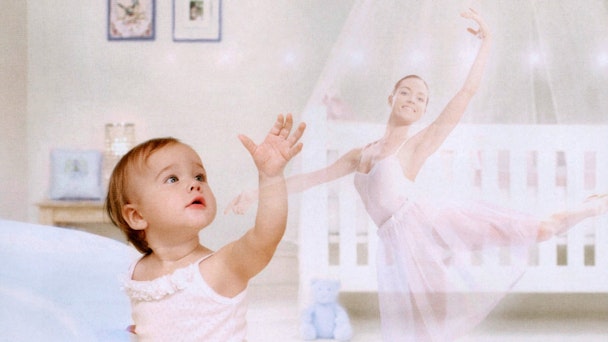Ads that would probably have been banned under the ASA's new gender stereotype rules
Following a review of gender stereotyping in ads by the Advertising Standards Authority (ASA) last year, the ASA and the Committees of Advertising Practice (CAP) announced today (14 December) that ads now "must not include gender stereotypes that are likely to cause harm or serious or widespread offence."

This advert from Aptamil would most likely not pass the tes
The review that conducted by ASA follows on from a report from the regulator that found "a tougher line is needed on ads that feature stereotypical gender roles or characteristics which can potentially cause harm."
Although the new rule will challenge brands on their depiction of gender stereotypes, the ASA itself has admitted that it isn't intended to "ban all forms of gender stereotypes" – such as a woman in the kitchen or a man doing DIY.
To prepare advertisers for the fresh standard, which will come into force on 14 June 2019, CAP has published guidance by providing examples of scenarios, that under the new rule, would be banned.
Here are some other scenarios the ASA deems “problematic”:
- Ads that show a man or a woman failing to achieve a task specifically because of their gender
- Ads that feature a person with a physique not typically associated with their gender, which imply that their physique is a ‘significant reason’ for them not being successful, for example in their romantic or social lives
- Ads aimed at new mums which suggest looking attractive or keeping a home pristine is a priority over other factors like their emotional wellbeing
- Ads that belittle a man for carrying out stereotypically ‘female’ roles or tasks
Here is a list of ads gone by that would probably be banned under the new rule:
Yorkie 'Not for Girls'
Yes, it's tongue-in-cheek but there's is an undeniable undertone in Yorkie's former ads that undermines a woman's capability.
Yorkie's 'It's Not for Girls' campaign, which began in 2001, was brand defining. It ran throughout the 90s then a 2006 version was jokingly made in pink, released exclusively for women, but it was not until 2011 that Yorkie dropped the controversial campaign.
If Yorkie was still running the campaign, it would probably fall foul of the new rules, because it is an ad that emphasises the contrast between male and female personality traits.
Aptamil
This advert from Aptamil would most likely not pass the test, because it depicts girls as aspiring to be dancers, while boys do the maths.
Called out at the time for being 'sexist' – the ad would potentially sit in the inappropriate gender stereotyping zone outline by the ASA.
Such portrayals can be potentially harmful to children as they negatively restrict how they see themselves and how others see them.
Huggies 'Dad Test'
The trope of the hapless dad, struggling to perform the littlest tasks that a mother could do in her sleep, is one that would be under fire in the ASA's new rules.
This commercial from Huggies could be at risk for 'featuring a man trying and failing to undertake simple parental or household tasks.'
The premise of the spot? To prove that Huggies can withstand the 'toughest test imaginable' – the 'dad test.'
A generation on from the distant father who enters the house late from work, to a warm meal on the table – the modern dad is often portrayed as bumbling and incapable, which is definitely not the case.
Gap

Back in 2016, Gap faced a backlash online over an ad for its GapKids clothing range, which Twitter users described as 'sexist.' The ad juxtaposed a young boy wearing an Einstein t-shirt, with a caption that reads 'The Little Scholar: Your future starts here' with a young girl, accompanied with the strapline 'The social butterfly.'
Ads that emphasise the contrast between a girls and boy's stereotypical personality will be deemed inappropriate under the new rule.
Yet, the creative would not have been so problematic if the children had been presented separately.
'If I start to look sexy, book a taxi'

A taxi firm in Bristol recently came under fire for a sexist ad that mocked an older lady for being 'fat and ugly'.
The caption of the ad reads: 'If I start to look sexy book a taxi. Don't make bad decisions because you have has one too many.'
This ad would probably be banned under the new rule as it 'features a person with a physique not typically associated with their gender, which imply that their physique is a ‘significant reason’ for them not being successful'.

